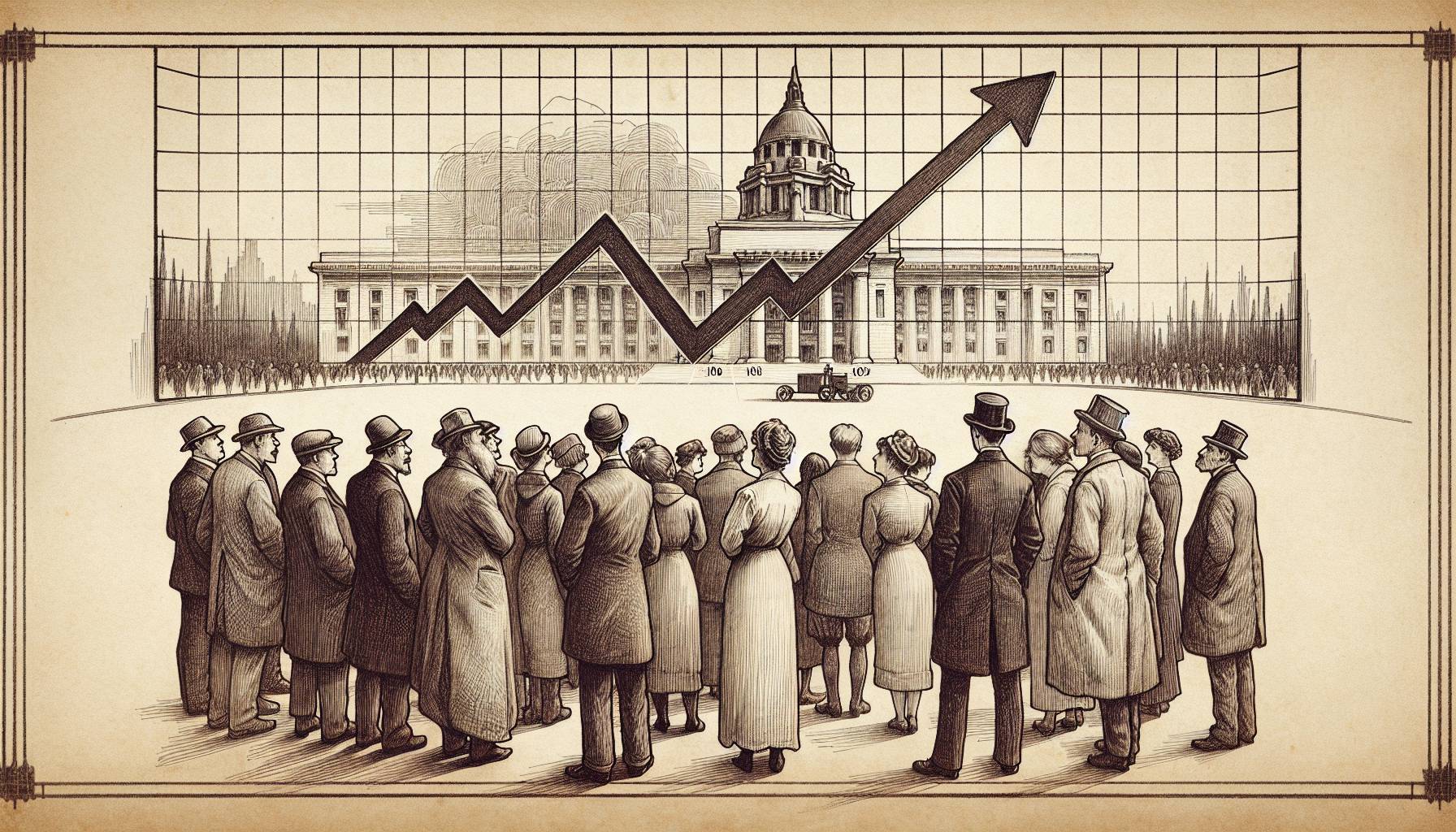American citizens are becoming concerned about their economic future due to increasing inflation, which is causing discomfort and surpassing even election-related worries. This upsurge in the cost of living, combined with stagnant wages, is straining budgets and making daily life harder for many.
Recent surveys have indicated that job security and inflation are becoming primary concerns, eclipsing deliberations regarding political issues. The government is now under pressure to intervene and stabilize the economy by finding a balance between fiscal policy and inflation control.
A report published on May 19, 2024, shows a significant drop in consumer confidence. This change in behavior can largely be attributed to the ongoing economic uncertainty and recent spikes in inflation. As a result, sectors such as retail, travel, and hospitality have reported a decrease in sales and revenue, forcing businesses to rethink their strategies.
If this downward trend continues unchecked, analysts warn it could have potentially severe effects on both local and national economies. So, the government is urged to introduce measures to boost consumer confidence and stabilize the economic landscape.
The University of Michigan’s consumer sentiment index reflects a significant drop in economic optimism, the largest since 2021, indicating many households are financially stretched due to rising prices.
Addressing inflation: America’s economic unease
Inflation, already at a 30-year high, is exacerbating the situation further by eroding consumers’ purchasing power. Experts are highlighting the need for policymakers to provide economic relief to counter this financial strain.
The mounting anxiety about the economy is not sustainable for most American households. The consensus is that addressing these inflation fears should be a top priority for policymakers, pointing at the urgent need for sustainable, policy-driven economic solutions.
The report also indicates that due to the decline in confidence, American consumers are cutting back on various expenditures. This reduction in consumer spending suggests a slower economic growth rate, potentially leading to job losses and lower corporate profits. So, businesses may need to rethink their strategies and find innovative ways to stimulate demand.
Despite earlier optimism about economic recovery, current statistics suggest that this recovery is shaky, with doubts centering on the challenges of inflation, job growth, and economic stability. As Covid-19 cases resurge and the new variants spread rapidly, experts feel the recovery might be slower than anticipated.
Overall, these factors pose a threat to economic stability. In this challenging time, urgent, targeted, policy interventions are necessary to alleviate the financial burden borne by American families.













